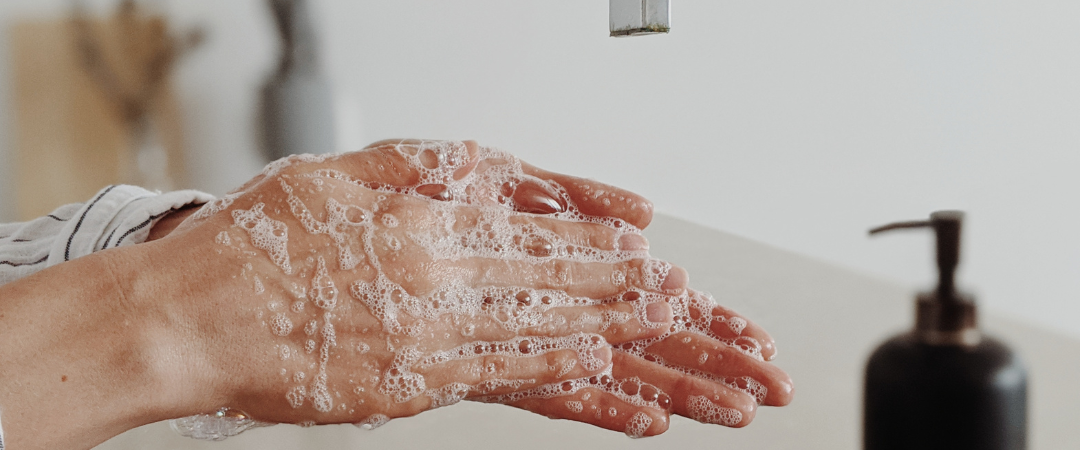Infection control is a critical aspect of healthcare, especially in skilled nursing and rehabilitation centers like Bridgewood Post-Acute. As residents recover from illness, surgery, or manage chronic conditions, preventing infections becomes a top priority. Through a combination of best practices, staff training, and advanced safety protocols, Bridgewood Post-Acute ensures that residents receive care in a clean, secure, and health-conscious environment.
Why Infection Control Matters
In skilled nursing and rehabilitation facilities, residents often have weakened immune systems, making them more susceptible to infections. Conditions such as post-surgical recovery, chronic illness management, and long-term care require an environment where infection risks are minimized. Proper infection control protects residents, staff, and visitors from the spread of harmful pathogens and reduces the risk of complications that could lead to extended hospital stays or serious health concerns.
Comprehensive Infection Control Measures
At Bridgewood Post-Acute, infection control measures are integrated into daily care practices. The facility follows rigorous guidelines to maintain a safe environment for all residents. Here are some of the key strategies employed:
- Hand Hygiene Protocols
Hand hygiene is one of the most effective infection control measures. Staff members adhere to strict handwashing guidelines, ensuring that hands are thoroughly cleaned before and after resident interactions. The facility provides hand sanitizing stations throughout the building to encourage proper hygiene among staff, residents, and visitors.
- Routine Cleaning & Disinfection
Bridgewood Post-Acute maintains high standards of cleanliness by implementing rigorous cleaning protocols. High-touch surfaces, including bed rails, door handles, wheelchairs, and medical equipment, are disinfected regularly. The housekeeping team uses hospital-grade disinfectants to eliminate harmful bacteria and viruses, further enhancing infection control efforts.
- Personal Protective Equipment (PPE)
The proper use of personal protective equipment (PPE) is crucial in reducing the spread of infections. Staff members are trained to wear masks, gloves, gowns, and eye protection as needed. PPE usage is based on the level of risk and type of care provided, ensuring that both residents and caregivers remain protected.
- Vaccination Programs
Vaccination is a vital component of infection control. Bridgewood Post-Acute encourages residents and staff to stay up to date on recommended vaccinations, including flu shots, COVID-19 boosters, and pneumococcal vaccines. By increasing immunity levels within the facility, the risk of outbreaks is significantly reduced.
- Infection Surveillance & Rapid Response
Infection control requires proactive monitoring. The facility implements an infection surveillance program to track potential outbreaks and respond quickly to emerging threats. If a resident shows signs of an infection, immediate action is taken, including isolation protocols and enhanced cleaning measures to prevent further spread.
- Staff Training & Compliance
Ongoing education and training are essential for maintaining infection control standards. Staff members at Bridgewood Post-Acute receive regular training on infection prevention protocols, ensuring they stay informed about the latest best practices. Compliance is monitored through routine audits, reinforcing a culture of safety and accountability.
- Resident & Visitor Education
Infection control is a shared responsibility. Residents and their families are encouraged to participate in maintaining a safe environment. Educational materials and guidance on hygiene, vaccinations, and symptom monitoring help residents take proactive steps in preventing infections. Visitors are also informed of proper hygiene protocols, including handwashing and mask usage when necessary.
Preventing Common Infections in Skilled Nursing Facilities
Certain infections are more common in skilled nursing and rehabilitation settings. Bridgewood Post-Acute has developed targeted strategies to combat these risks:
- Respiratory Infections: Measures such as proper ventilation, respiratory etiquette, and vaccination help minimize flu, pneumonia, and COVID-19 risks.
- Urinary Tract Infections (UTIs): Hydration programs, proper catheter care, and hygiene education help reduce the likelihood of UTIs.
- Skin Infections & Wound Care: Specialized wound care programs and infection control procedures prevent complications from pressure ulcers and post-surgical wounds.
- Gastrointestinal Infections: Safe food handling practices and strict sanitation protocols help prevent outbreaks of illnesses such as norovirus and Clostridium difficile (C. diff).
Commitment to a Safe and Healthy Environment
At Bridgewood Post-Acute, infection control is more than just a policy—it’s a commitment to resident well-being. By prioritizing cleanliness, proper hygiene, and staff education, the facility fosters a culture of safety that promotes better health outcomes. Residents and their families can have peace of mind knowing that infection prevention measures are in place to support a safe and comfortable recovery journey.
For those seeking a skilled nursing and rehabilitation center that places a strong emphasis on infection control, Bridgewood Post-Acute provides the highest level of care and attention. To learn more about their infection prevention strategies or to schedule a tour, contact Bridgewood Post-Acute today.
